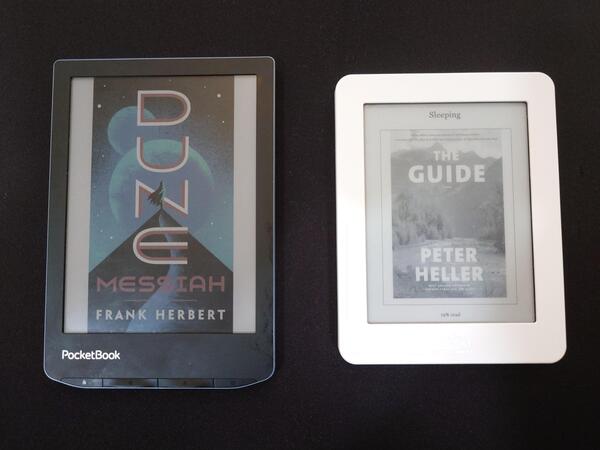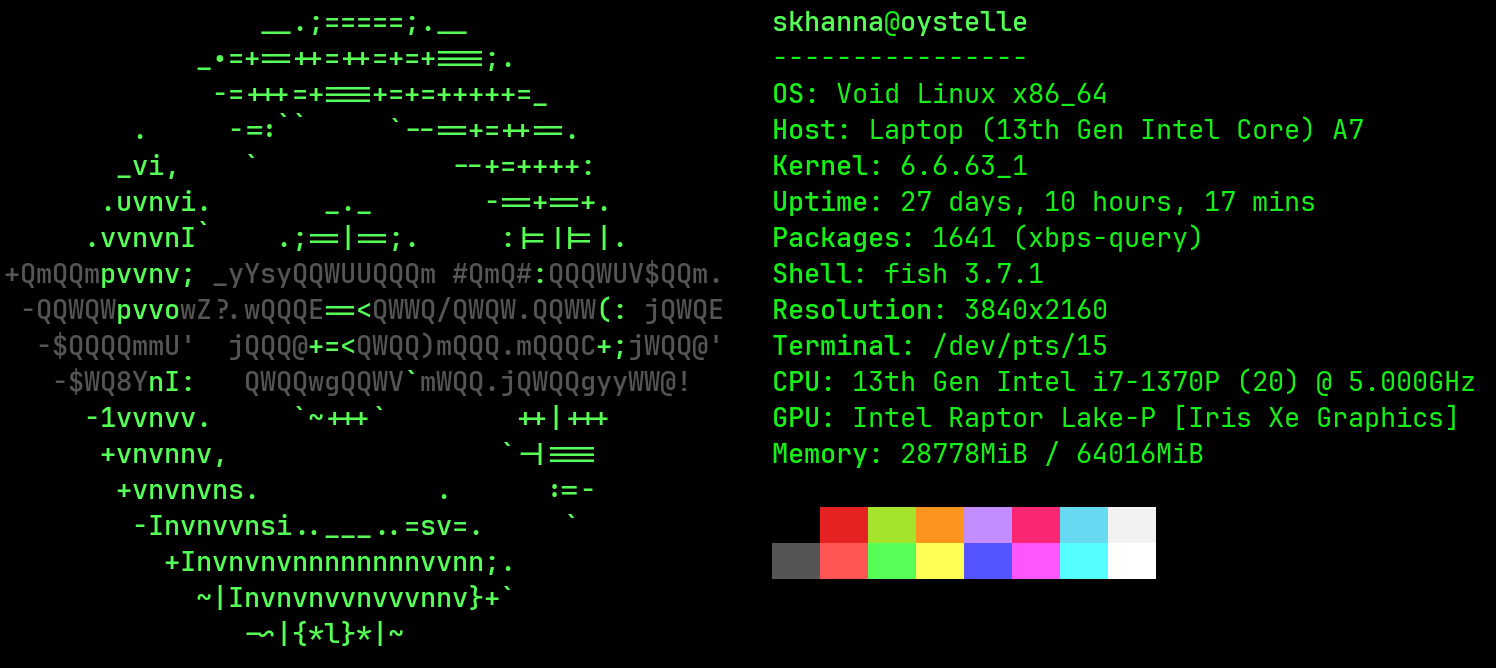Prentice Cooper - April 2025 - Off-road
MiscellaneousKobo, Kindle and PocketBook: A Tale of Three e-Readers
Technology
Years ago, I donated most of the physical books I had to local libraries in preparation for moving out of the country. While abroad, I switched to reading books on a tablet device as a way of staying minimalistic. In the fall of 2021, I purchased my first e-ink reader: A Kobo Mini. Although it was new old stock, the reader was already past its support life when I purchased it. I’ve read over a dozen books on it in the past three years, but this small e-reader is starting to show its age. Momentarily, I tried an Amazon Kindle, which turned out to be a horrible mistake.
I ended up replacing the Kobo Mini with a PocketBook Verse Pro Color. It had to be ordered from Europe since it’s not available in American markets. It’s a great little reader, and I’ve already finished six books on the device in the first two months I’ve had it. In this post I’ll go over the Kobo, the issues I ran into with Amazon products, and my current thoughts on the PocketBook.
Read MoreDonating to Things that Matter
Miscellaneous
I’ve talked about how making moral purchasing decisions likely doesn’t amount to a hill of beans in this world, but I am still going to do it anyway. I’ve been meaning to donate to several open source technology and alternative media groups. These are small contributions in the overall scheme of things, but I hope they provide some value to each of these organizations.
Read MoreBibliobunny: A Tool for Extracting eBook Highlights From Kindle and Play Books
Technology
I like to keep backups of things other people just leave “in the cloud,” (which is really just some private corporation’s computer). In the past, I’ve used eReader software on tablets or phones. I wanted to create a book quote bot that would post random highlights from novels I’ve read. In order to do so, I first had to write tools to convert book highlights into usable formats. Bibliobunny is a Python application I wrote to parse notes from Amazon Kindle and Google Play note formats into JSON. It can also load those JSON files into a sqlite database, which can be used to post book quotes to a Pleroma server.
Read MoreFree Speech, Fires and Terrorism
Politics
A lot of major events, disruptions and tragedies are flooding in with 2025. I’ve already talked about the numerous new year’s events, as well as the continued narrative of vigilantism carried over from the previous year. In just a few short weeks, a lot has been added to the bizarre outrage frenzy of the new quarter-century. Elon Musk has shown his true colors with the censorship on Xitter over H1-B visa arguments. Meanwhile, people are actually believing the insane nonsense Zuckerberg is spewing about how Facebook will now reduce censorship. Los Angeles has had a devastating fire that’s destroyed thousands of homes and lives—a disaster that is only made worse by political exploitation of the entire situation. All of this domestic news overshadows the ongoing conflict in much of the Middle East, which threatens to spill over into the rest of the world. We’re not even through January.
Read More2025 Is the Year of Psychological Operations
Politics
I think some of my early thoughts on the CEO killer have panned out. The story of Luigi’s Mansion has become even more ridiculous as time has gone on. The news concerning drones is laughable dribble. As 2025 has started out, we’re greeted with an exploding Cybertruck outside a Trump hotel, along with someone driving through a crowd in New Orleans. Whether these events were truly random acts or they were carefully planned and orchestrated is completely irrelevant. The media has latched onto these events, directing a narrative over domestic issues. It helps to ignore and overshadow the toppling of Syria’s government by the American, Israeli and Turkish support of terrorist organizations. If this is just the first week of 2025, we’re in for a bumpy ride.
Read MoreAdventures and Custom Repositories in Void Linux
Technology
I’ve been using Void Linux on several of my servers and my work laptop. I’ve found it to be a stable Linux distribution, with many of the tools I commonly use in its package repository. It is not derived off of another distribution, and is built around its own xbps package manager. Some of the commands for xbps are a bit difficult to remember, and it doesn’t have the best command line interface. Void also uses runit for service management, which also has some non-traditional ways of handling services. In this article, I’ll go over some valuable tools, such as vpm and vsv, which greatly improve the Void Linux command line experience. I’ll also go over voidup, a tool I built for creating custom package repositories on Void Linux.
Sony Xperia 1 V
Technology
I’ve had my current phone since 2019. I’ve gone through a lot of mobile devices over my life, and it’s been nice to have a single phone that’s lasted this long. Although most of the phone seems to work fine, the LTE connectivity issues I had to deal with previously have only gotten worse. Phone calls, both over my normal carrier and via jmp.chat have been incredibly unreliable for over a year. I suspect that some of the hardware (possibly the cell modem and the microphone) has physically degraded. So after nearly five years, I got a new device. I’ll go over the steps I take to de-Google my device, as well as some of my favorite mobile applications, both open source and proprietary.
Read MoreOn The Shooting of CEOs and Psychological Operations
Politics
UnitedHealthcare CEO Brian Thompson was gunned down while on a business trip in Manhattan on Wednesday, December 4th. Almost immediately, security camera footage was released of what appears to be a targeted assassination. All over the Internet, jokes and memes were made praising the shooter for what appears to look like an act of vigilantism by a citizen upset by American’s broken health insurance system. A narrative was built by the media almost immediately. The whole story, and the reaction to it, has really brought out the absolute worst in people and generally lowered my hope for humanity.
Read MoreWho Archives the Archivist?
Politics
The Internet Archive was allegedly hacked, and their crawler stopped updating conveniently prior to the election. Although the Wayback Machine was partially restored, most of the archive’s services were down for a considerable amount of time. The Internet Archive has recently gone through a substantial amount of legal trouble, and some of their content has disappeared after they restored all their services. For an organization that has preserved so much of the old Internet, the recent events are quite troubling. They bring into question the entire integrity of the Internet Archive and the Wayback Machine.
Read More